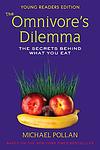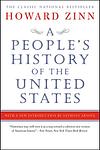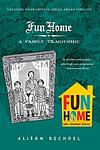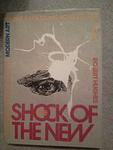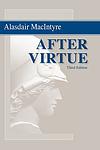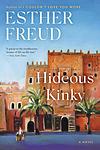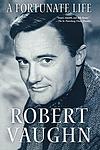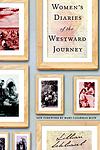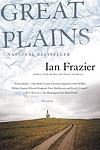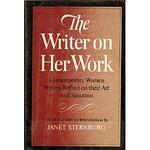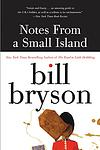The Greatest "Nonfiction" Books Since 1980
Click to learn how this list is calculated.
This list represents a comprehensive and trusted collection of the greatest books. Developed through a specialized algorithm, it brings together 286 'best of' book lists to form a definitive guide to the world's most acclaimed books. For those interested in how these books are chosen, additional details can be found on the rankings page.
Genres
Countries
Date Range
Reading Statistics
Click the button below to see how many of these books you've read!
Download
If you're interested in downloading this list as a CSV file for use in a spreadsheet application, you can easily do so by clicking the button below. Please note that to ensure a manageable file size and faster download, the CSV will include details for only the first 500 books.
Download-
51. The Sixth Extinction: An Unnatural History by Elizabeth Kolbert
The book explores the concept of the sixth extinction, suggesting that we are currently in the midst of it due to human activity. By examining previous mass extinctions and the current rapid loss of species, the author argues that humans are causing a mass extinction event through climate change, habitat destruction, and spreading of non-native species. The book offers a sobering look at the impact of human behavior on the natural world, emphasizing the urgency of addressing these environmental issues.
-
52. The Emperor of All Maladies: A Biography of Cancer by Siddhartha Mukherjee
This book is a comprehensive history of cancer, its treatments, and the ongoing search for a cure. It presents an in-depth exploration of the disease from its first documented appearances thousands of years ago through the epic battles in the twentieth century to cure, control, and conquer it, to a radical new understanding of its essence. The book also discusses the politics of cancer research, the impact of patient activism, and the complex and often fraught relationships between researchers, oncologists, and patients.
-
53. The Omnivore's Dilemma by Michael Pollan
The book delves into the question of what we should have for dinner. It explores the paradox of the omnivore's dilemma, detailing the food chains that link farm to table, and explaining how the industrial revolution has changed the way we eat. The book also discusses the implications of our modern diet on our health and the environment, suggesting that we should return to more traditional methods of food production and consumption. It advocates for a more conscious and sustainable approach to eating.
-
54. Team of Rivals: The Political Genius of Abraham Lincoln by Doris Kearns Goodwin
This book explores the political acumen of Abraham Lincoln, focusing on how he assembled his cabinet from political adversaries, many of whom initially dismissed him for his perceived lack of experience and ungainly appearance. The narrative delves into how Lincoln used his rivals' talents to navigate the tumultuous times of the Civil War, maintaining unity and leading the nation towards the abolition of slavery. It underscores Lincoln's extraordinary ability to turn rivals into allies, demonstrating his leadership and his profound impact on American history.
-
55. A People's History of the United States by Howard Zinn
This book is a comprehensive overview of American history from the perspective of the marginalized and underrepresented groups, rather than the typical focus on political elites. It covers a wide range of historical events and periods, including the discovery of the continent, the founding of the United States, slavery, the Civil War, and up to the modern era. The book challenges traditional narratives and provides a critical and thought-provoking look at the nation's past.
-
56. The Marriage Of Cadmus And Harmony by Roberto Calasso
"The Marriage of Cadmus and Harmony" is a unique exploration of Greek mythology. The narrative follows the journey of Cadmus, a Phoenician prince, and his marriage to Harmony, a goddess. The book delves deep into the complex and rich tapestry of Greek myths, presenting them as a continuous and ever-evolving story. It offers fascinating insights into the gods, heroes, and monsters of ancient Greece, while also drawing connections to modern life and thought.
-
57. Fun Home: A Family Tragicomic by Alison Bechdel
The graphic memoir revolves around the author's childhood and youth in rural Pennsylvania, United States, in the backdrop of a dysfunctional family. The story particularly focuses on her complex relationship with her closeted gay father, who was an English teacher, a funeral home director, and a historic home restorer. The narrative is non-linear, exploring themes of sexuality, gender roles, suicide, emotional abuse, and the role of literature in understanding oneself and one's family.
-
58. The Shock of the New by Robert Hughes
"The Shock of the New" is an insightful exploration of modern art from the late 19th century to the present day. The book examines the cultural, social, and political forces that shaped and influenced the development of various art movements such as Cubism, Futurism, Surrealism, and Pop Art. It also provides an in-depth analysis of the works of prominent artists who played pivotal roles in these movements. The book serves as a comprehensive guide to understanding the complexities and nuances of modern art.
-
59. Into Thin Air by Jon Krakauer
This gripping non-fiction book recounts the tragic events of the 1996 Mount Everest disaster. The author, a journalist and experienced climber, was part of a commercial expedition to summit Everest. The expedition soon turned disastrous due to a severe storm, leading to the death of several climbers from various teams. The book provides a vivid, personal account of the harrowing ordeal, detailing the physical and psychological challenges faced by climbers at high altitudes, as well as the ethical and commercial aspects of mountaineering expeditions.
-
60. Modern Times by Paul Johnson
"Modern Times" is an in-depth historical analysis of the 20th century, covering major events, movements, and figures that have shaped the modern world. The author critically examines the impacts of World War I and II, the Cold War, the rise of totalitarian regimes, and the influence of religion and ideology on politics and society. The book also explores significant scientific and technological advancements, and their effects on human perception and behavior. It provides a comprehensive understanding of the complexities and contradictions of the 20th century, and how they continue to influence the 21st century.
-
61. After Virtue by Alasdair MacIntyre
This book is a critique of contemporary moral philosophy, arguing that modern ethical theories have failed to provide a coherent basis for moral judgments. The author believes that the Enlightenment project of justifying morality through reason has ultimately failed, leading to a culture of emotivism where moral arguments are reduced to expressions of personal preference. The author suggests a return to Aristotelian virtue ethics, emphasizing the importance of moral character and the role of community in ethical life.
-
62. The Looming Tower by Lawrence Wright
"The Looming Tower" is a comprehensive historical examination of the events leading up to the 9/11 terrorist attacks on the United States. It delves into the origins of Al-Qaeda, the rise of Osama bin Laden, and the failure of U.S. intelligence agencies to prevent the attacks. The narrative is extensively researched and provides a detailed account of Islamic fundamentalism, the complex politics of the Middle East, and the role of the United States in the region. The book also explores the personal stories of key figures on both sides of the conflict.
-
63. Hideous Kinky by Esther Freud
A young woman travels to Morocco with her two daughters in search of a more fulfilling and adventurous life. The novel explores the experiences of the two young girls as they navigate this new and unfamiliar culture, their mother's search for spiritual enlightenment, and their struggles with poverty. The narrative is a poignant exploration of childhood innocence, the complexities of motherhood, and the clash of cultures.
-
64. Postwar by Tony Judt
"Postwar" is a comprehensive analysis of the history of Europe from the end of World War II to the early 21st century. The book examines the major political, cultural, social, and economic changes that have shaped the continent, including the Cold War, the rise and fall of the Soviet Union, the rebuilding of Western Europe, and the challenges of integrating Eastern Europe into the European Union. It also delves into the impact of these events on the daily lives of Europeans, exploring themes of memory, identity, and the struggle to come to terms with the past.
-
65. A Fortunate Life by A.B. Facey
"A Fortunate Life" is a memoir that chronicles the extraordinary life of a man who overcame immense hardships and adversity to find happiness and contentment. From his humble beginnings in rural Australia to his experiences as a soldier in World War I, the author shares his remarkable journey filled with poverty, loss, and resilience. Despite facing numerous challenges, he remains optimistic and grateful for the opportunities life has presented him, ultimately proving that a fortunate life is not defined by material wealth, but by the strength of the human spirit.
-
66. Women's Diaries of the Westward Journey by Lillian Schiessel
This book provides a poignant and revealing collection of personal accounts from women who traveled across the American frontier during the 19th century. Through the intimate lens of their diaries and letters, it offers a unique perspective on the hardships, hopes, and daily lives of female pioneers. The narratives highlight the emotional and physical challenges these women faced, from dealing with disease and death to managing domestic duties in the harsh and often unforgiving environment. The compilation not only serves as a historical record of the westward expansion but also as a testament to the resilience and strength of women in the face of adversity.
-
67. Great Plains by Ian Frazier
"Great Plains" is a travelogue that takes readers on a journey through the vast expanse of the American Great Plains, exploring its history, geography, and culture. The author travels from North Dakota to Texas, delving into the history of Native Americans, pioneers, and outlaws. The book provides a detailed account of the region, its people, and its significance in shaping the American West, offering a vivid portrait of the landscape and its influence on the country's identity.
-
68. Nickel And Dimed by Barbara Ehrenreich
The book is a firsthand journalistic account of the author's experiment to survive on minimum wage jobs in America. She gives up her middle-class life to understand the reality of low-wage workers, working as a waitress, a hotel maid, a cleaning woman, a nursing home aide, and a retail chain employee. The book reveals the harsh and often overlooked conditions of the working poor, highlighting the struggle to afford even basic necessities, the lack of job security, and the physical toll of such work.
-
69. The Writer on Her Work by Janet Sternburg
"The Writer on Her Work" is a collection of essays by various female authors who discuss their experiences, challenges, and perspectives on writing. The book explores the complexities of being a woman in the literary world, shedding light on topics such as gender bias, the struggle for recognition, and the balance between personal life and professional aspirations. It provides a unique insight into the creative process, revealing how these women navigate their craft amidst societal expectations and personal obstacles.
-
70. Cosmos by Carl Sagan
This landmark book is a majestic cosmic tour that delves into the nature of the universe, exploring a vast array of topics including the science of space and time, the origins of life, and the human quest for understanding. It intertwines science and philosophy, taking readers on a journey through the history of astronomy, the development of the scientific method, and the incredible vastness of the cosmos. The narrative is infused with a sense of wonder and awe at the complexity and beauty of the universe, as well as a thoughtful consideration of the place of humanity within it. The work is a celebration of human curiosity and a powerful advocate for the importance of science and education in helping us to understand our world and our place in the cosmos.
-
71. Kitchen Confidential by Anthony Bourdain
The book is an insider's account of the culinary world, revealing the harsh realities of restaurant kitchens. The author, a professional chef, shares his personal experiences, the good and the bad, in a brutally honest and witty manner. He provides an unvarnished look at the industry, from the chaotic kitchen environment and the high-pressure service, to the eccentric characters he has worked with. The book also includes his reflections on food culture, cooking techniques, and his own journey in the culinary field.
-
72. Tracks by Robyn Davidson
"Tracks" is a memoir that recounts the author's extraordinary journey across the Australian desert on camelback. The narrative provides vivid descriptions of the harsh desert landscape, the challenges faced during this nine-month, 1,700-mile trek, and the transformation of the author's personal character along the way. The book also explores her interactions with the indigenous Aboriginal people and their culture, and includes her reflections on solitude, self-discovery, and the human connection to nature.
-
73. Shah Of Shahs by Ryszard Kapuscinski
This book is a compelling blend of history and personal narratives, set against the backdrop of Iran's 1979 revolution. The author, a seasoned journalist, delves into the complex tapestry of Iranian society, exploring the rise and fall of the last monarch. Through a series of vignettes and interviews with Iranians from all walks of life, the narrative captures the atmosphere of fear and hope that defined the era. The work is as much an examination of the mechanics of power and the ease with which a society can be manipulated as it is a chronicle of a pivotal moment in Iran's history. The author's lyrical prose and sharp insights offer a timeless reflection on the nature of tyranny and the human struggle for freedom.
-
74. Notes from a Small Island by Bill Bryson
This humorous travel memoir features an American author's journey across the United Kingdom, where he had lived for two decades. Before returning to the United States, he decides to tour the country, using public transportation and staying in small-town accommodations. The book provides an amusing, and at times sarcastic, outsider's perspective on British life, culture, and idiosyncrasies, while also expressing a deep affection for the nation and its people.
-
75. Sapiens: A Brief History of Humankind by Yuval Noah Harari
This book provides a comprehensive exploration of the history of the human species, tracing back from the earliest forms of Homo Sapiens to the modern day. It delves into evolutionary biology, the development of cultures and societies, and the rise of major ideologies and technologies. The book also discusses the future of the species, posing thought-provoking questions about our roles and responsibilities in a rapidly changing world.
Reading Statistics
Click the button below to see how many of these books you've read!
Download
If you're interested in downloading this list as a CSV file for use in a spreadsheet application, you can easily do so by clicking the button below. Please note that to ensure a manageable file size and faster download, the CSV will include details for only the first 500 books.
Download

